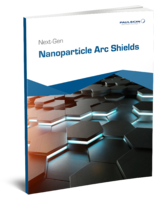IPC commends Senate passage of Frank R. Lautenberg Act.
Share:
Press Release Summary:
According to statement by John Mitchell, IPC President and CEO, IPC commends the U.S. Senate for passing the Frank R. Lautenberg Chemical Safety for the 21st Century Act (S. 697). IPC appreciates the bipartisan leadership of U.S. Senators David Vitter (R-LA) and Tom Udall (D-NM) for sponsoring this legislation to reform the Toxic Substances Control Act of 1976, which needs to be modernized to reflect 21st century realities and to help promote innovation and growth.
Original Press Release:
IPC Commends U.S. Senate on Passage of Frank R. Lautenberg Chemical Safety for the 21st Century Act
Statement from John Mitchell, IPC President and CEO
BANNOCKBURN, Ill., USA, — On behalf of IPC – Association Connecting Electronics Industries® and an estimated 800,000 people employed in our 2,200 U.S. member facilities, we commend the U.S. Senate for passing the Frank R. Lautenberg Chemical Safety for the 21st Century Act (S. 697).
IPC appreciates the bipartisan leadership of U.S. Senators David Vitter (R-La.) and Tom Udall (D-N.M.) for sponsoring this legislation to reform the Toxic Substances Control Act (TSCA) of 1976, which needs to be modernized to reflect 21st century realities. A strong, cost-effective, science-based federal chemical regulatory program is important to our members, who use chemicals to manufacture electronics for the nation’s defense, aerospace, automotive, consumer and other industries. S. 697 includes sensible, balanced provisions for modernizing the United States’ outdated chemical regulatory program to help promote innovation and growth within our economy. The Senate’s recognition of the need to modernize environmental rule-making is a big step in the right direction.
We look forward to working with House and Senate members as this bill goes to conference with the House, and various issues are resolved.
About IPC
IPC (www.IPC.org) is a global industry association based in Bannockburn, Ill., dedicated to the competitive excellence and financial success of its 3,700 member companies which represent all facets of the electronics industry, including design, printed board manufacturing, electronics assembly and test. As a member-driven organization and leading source for industry standards, training, market research and public policy advocacy, IPC supports programs to meet the needs of an estimated $2 trillion global electronics industry. IPC maintains additional offices in Taos, N.M.; Washington, D.C.; Atlanta, Ga.; Stockholm, Sweden; Moscow, Russia; Bangalore and New Delhi, India; Bangkok, Thailand; and Qingdao, Shanghai, Shenzhen, Chengdu, Suzhou and Beijing, China.




